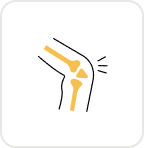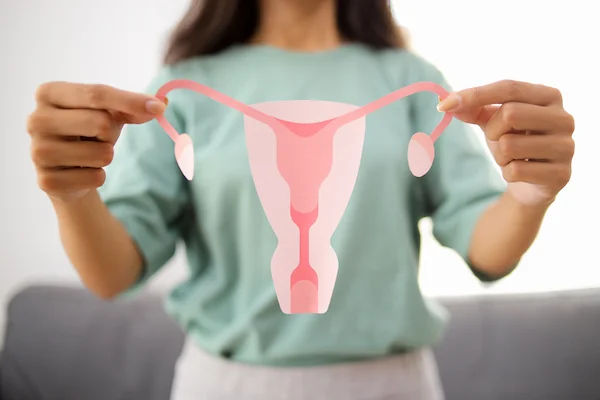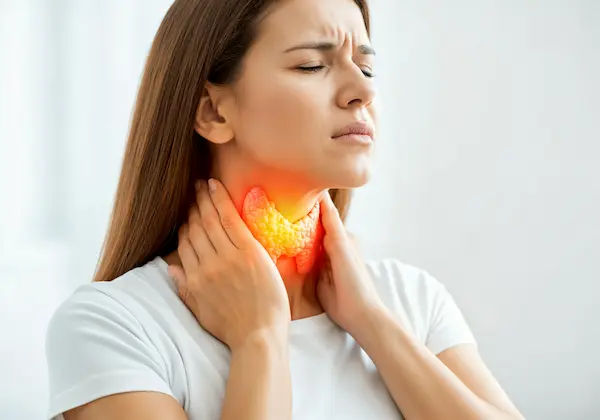Signs Of Vitamin D Deficiency
Discover the common signs of vitamin D deficiency, including symptoms, causes, and health risks. Learn how proper diet, sunlight, and supplements can help restore levels.

Written by Dr. Dhankecha Mayank Dineshbhai
Reviewed by Dr. Md Yusuf Shareef MBBS
Last updated on 13th Jan, 2026

Often called the "sunshine vitamin," Vitamin D is a crucial nutrient that acts like a hormone in your body, influencing everything from bone health to mood. Despite its importance, vitamin D deficiency is a silent epidemic, affecting an estimated 1 billion people worldwide. You might be lacking this essential vitamin without even realizing it, as the symptoms can be subtle and easily mistaken for other issues. This article will illuminate the top signs of vitamin D deficiency, explain who is most at risk, and provide actionable steps you can take. Understanding these signals is your first line of defense in safeguarding your long-term health and well-being.
The 10 Most Common Signs You Might Be Deficient
The symptoms of low vitamin D can be vague and develop slowly over time, which is why deficiency often goes undiagnosed. Here are the top signs to watch for.
1. Persistent Fatigue and Tiredness
Feeling constantly drained, even after a full night's sleep, is one of the most common complaints. A study published in the North American Journal of Medical Sciences found that correcting a severe deficiency led to significant improvements in fatigue symptoms. If coffee just isn't cutting it, your vitamin D levels might be the culprit.
2. Bone and Back Pain
Vitamin D is critical for calcium absorption. A deficiency can lead to aching, throbbing bone pain, often felt in the lower back, pelvis, hips, legs, and ribs. This pain is distinct from muscle soreness and may persist without a clear injury.
3. Depression and Low Mood (Especially SAD)
Have you noticed a link between your mood and the seasons? Vitamin D deficiency and depression are strongly linked, particularly with Seasonal Affective Disorder (SAD) during darker winter months. Vitamin D receptors in the brain help regulate mood, and low levels are associated with greater feelings of sadness and lethargy.
4. Impaired Wound Healing
If your cuts, scrapes, or surgical incisions are taking longer than usual to heal, it could signal low vitamin D. Vitamin D promotes the production of compounds that are crucial for forming new skin as part of the wound-healing process. It also plays a key role in controlling inflammation and fighting infection, both essential for proper recovery.
5. Bone Loss and Osteoporosis
Vitamin D plays a central role in calcium metabolism and bone density. A diagnosis of osteopenia or osteoporosis is a major red flag. Low bone mineral density means your bones have lost calcium and other minerals, making them fragile. Ensuring adequate vitamin D intake is a non-negotiable part of any bone health strategy.
6. Muscle Pain and Weakness
The cause of muscle pain can be difficult to pinpoint, but evidence suggests vitamin D deficiency can be a contributing factor. The vitamin interacts with nociceptors (pain-sensing cells) and muscle function. Unexplained weakness, especially in large proximal muscles, making it hard to rise from a chair or climb stairs, can be a telltale sign.
7. Getting Sick Frequently
One of vitamin D's most important roles is keeping your immune system strong. If you find yourself constantly catching colds, flu, or other infections, a weakened immune system due to low vitamin D and immune system function could be to blame. It helps your immune cells produce proteins that destroy invading viruses and bacteria.
8. Hair Loss
While often attributed to stress, severe hair loss (alopecia areata) has been linked to nutrient deficiencies. Research shows that women with lower vitamin D levels are associated with higher rates of hair loss, though more studies are needed to confirm if supplementation helps.
9. Unexplained Weight Gain
Emerging research suggests a correlation between low vitamin D status and obesity. It's a chicken-or-egg scenario: does obesity cause lower vitamin D levels because the vitamin gets sequestered in body fat, or does low vitamin D contribute to unexplained weight gain by promoting fat storage? Likely, it's a combination of both, making maintaining healthy levels important for metabolic health.
Consult a Top Specialist
Who is Most at Risk for Vitamin D Deficiency?
Certain demographics and lifestyles significantly increase your risk.
Demographic and Lifestyle Risk Factors
Older Adults: Skin's ability to synthesize vitamin D decreases with age.
People with Darker Skin: Higher melanin levels reduce the skin's ability to produce vitamin D from sunlight.
Those Who Get Limited Sun Exposure: Office workers, night-shift workers, people in northern latitudes, or those who consistently wear sunscreen.
Breastfed Infants: Human milk is a poor source of vitamin D.
People with Certain Dietary Restrictions: Those following a strict vegan diet, as most natural sources are animal-based.
Medical Conditions That Affect Absorption
Inflammatory Bowel Disease (IBD), Celiac Disease, and Crohn's Disease: These conditions affect the gut's ability to absorb fat and, consequently, fat-soluble vitamins like D.
Kidney or Liver Diseases: These organs are needed to convert vitamin D into its active form.
Gastric Bypass Surgery: Alters the digestive tract, impacting absorption.
How is a Vitamin D Deficiency Diagnosed?
If you identify with several symptoms, the next step is to see your doctor.
Understanding the 25-Hydroxy Vitamin D Test
The only accurate way to measure your levels is through a blood test called the 25-hydroxy vitamin D test. The results are measured in nanograms per milliliter (ng/mL). While interpretations can vary:
Adequate: 20 ng/mL and above
Insufficient: 12–20 ng/mL
Deficient: Less than 12 ng/mL
Your doctor will use this result, combined with your symptoms, to determine if you need treatment.
Get Your Health Assessed
Treatment and Prevention: Boosting Your Vitamin D Levels
Raising your levels typically involves a three-pronged approach: sun, food, and supplements.
Safe Sun Exposure Practices
The body makes vitamin D when bare skin is exposed to UVB rays. A good rule of thumb is 10-30 minutes of midday sun exposure several times a week, without sunscreen, depending on your skin sensitivity. Beyond that, protect your skin to prevent damage.
Top Vitamin D-Rich Food Sources
It's challenging to get enough from food alone, but these sources help:
Fatty fish (salmon, mackerel, tuna)
Cod liver oil
Fortified foods (milk, orange juice, cereals)
Beef liver
Egg yolks
Choosing the Right Vitamin D Supplement
For many, choosing the right vitamin D supplement is necessary. Vitamin D3 (cholecalciferol) is generally considered more effective at raising blood levels than D2. Dosage varies wildly based on your deficiency level; always follow your doctor's recommendation. It's often recommended to take it with a meal containing fat for optimal absorption.
Conclusion
The signs of vitamin D deficiency are your body's way of sending an S.O.S. signal. While these symptoms can be subtle, ignoring them can lead to serious long-term consequences for your bone health, immune function, and overall quality of life. If the points in this article resonate with you, don't dismiss them as just stress or aging. Take action by discussing your concerns with a healthcare provider. A simple blood test can provide answers and set you on a path to better health, more energy, and a stronger body. Your future self will thank you for it.
Frequently Asked Questions (FAQs)
Below are a few FAQs,
1. What is the difference between vitamin D and D3?
A. Vitamin D is the overall term for a group of fat-soluble secosteroids. The two most important forms are D2 (ergocalciferol, from plants) and D3 (cholecalciferol, from animals and sunlight). D3 is the type naturally produced by your skin and is generally more effective at raising and maintaining vitamin D levels in the blood.
2. Can I get enough vitamin D from diet alone?
A. It is very difficult to get sufficient vitamin D from food alone. Very few foods are natural, rich sources. While fortified foods help, most people need a combination of sensible sun exposure and/or supplements to reach optimal levels, especially during winter months.
3. What is the best time to take a vitamin D supplement?
A. Since it is a fat-soluble vitamin, taking your vitamin D supplement with your largest meal of the day that contains healthy fats (like avocado, nuts, or olive oil) can enhance its absorption by up to 50%. There is no significant evidence that taking it at night versus the morning affects its efficacy.
4. Can too much vitamin D be harmful?
A. Yes, although it is rare. Vitamin D toxicity (hypervitaminosis D) occurs from extremely high doses of supplements, not from sun or diet. It can cause a buildup of calcium in your blood (hypercalcemia), leading to nausea, vomiting, weakness, and serious kidney problems. Always follow dosage guidelines from your doctor.
5. How long does it take to correct a vitamin D deficiency?
A. The time it takes to correct a deficiency depends on its severity and the dosage of supplementation. Under a doctor's supervision with a high-dose treatment plan, it can take a few weeks to a few months to raise blood levels to the normal range. Maintenance therapy is then typically recommended.
Consult a Top Specialist
Consult a Top Specialist

Dr Aakash Andgi
General Physician/ Internal Medicine Specialist
9 Years • MBBS MD
Bengaluru
Apollo Clinic, JP nagar, Bengaluru

Dr. Vivek D
General Physician
4 Years • MBBS
Bengaluru
PRESTIGE SHANTHINIKETAN - SOCIETY CLINIC, Bengaluru

Dr Syed Mateen Pasha
General Physician
2 Years • MBBS
Bengaluru
PRESTIGE SHANTHINIKETAN - SOCIETY CLINIC, Bengaluru

Dr. Anand Ravi
General Physician
2 Years • MBBS
Bengaluru
PRESTIGE SHANTHINIKETAN - SOCIETY CLINIC, Bengaluru

Dr. Harshendra Jaiswal
General Physician/ Internal Medicine Specialist
12 Years • MBBS , MD (General medicine)
Kolkata
108 DHANA DHANVANTARI Clinic, Kolkata
(25+ Patients)





